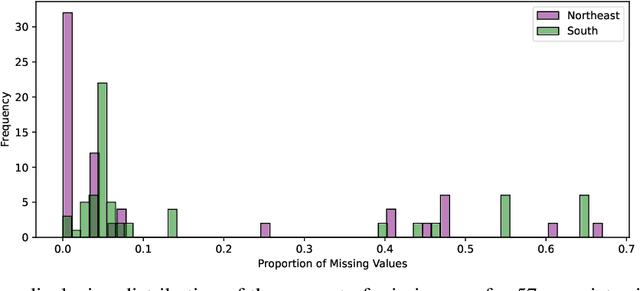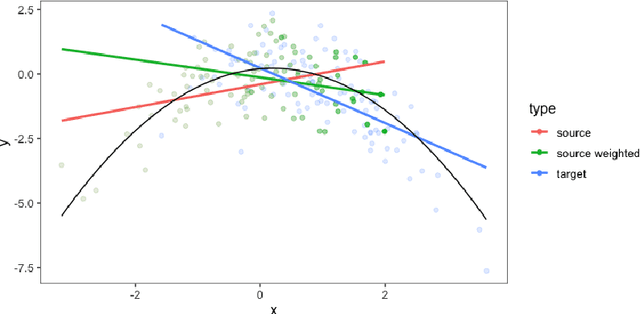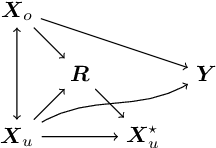Samrachana Adhikari
Domain Adaptation Under MNAR Missingness
Apr 01, 2025



Abstract:Current domain adaptation methods under missingness shift are restricted to Missing At Random (MAR) missingness mechanisms. However, in many real-world examples, the MAR assumption may be too restrictive. When covariates are Missing Not At Random (MNAR) in both source and target data, the common covariate shift solutions, including importance weighting, are not directly applicable. We show that under reasonable assumptions, the problem of MNAR missingness shift can be reduced to an imputation problem. This allows us to leverage recent methodological developments in both the traditional statistics and machine/deep-learning literature for MNAR imputation to develop a novel domain adaptation procedure for MNAR missingness shift. We further show that our proposed procedure can be extended to handle simultaneous MNAR missingness and covariate shifts. We apply our procedure to Electronic Health Record (EHR) data from two hospitals in south and northeast regions of the US. In this setting we expect different hospital networks and regions to serve different populations and to have different procedures, practices, and software for inputting and recording data, causing simultaneous missingness and covariate shifts.
High-Dimensional Longitudinal Classification with the Multinomial Fused Lasso
Jan 29, 2015



Abstract:We study regularized estimation in high-dimensional longitudinal classification problems, using the lasso and fused lasso regularizers. The constructed coefficient estimates are piecewise constant across the time dimension in the longitudinal problem, with adaptively selected change points (break points). We present an efficient algorithm for computing such estimates, based on proximal gradient descent. We apply our proposed technique to a longitudinal data set on Alzheimer's disease from the Cardiovascular Health Study Cognition Study, and use this data set to motivate and demonstrate several practical considerations such as the selection of tuning parameters, and the assessment of model stability.
 Add to Chrome
Add to Chrome Add to Firefox
Add to Firefox Add to Edge
Add to Edge